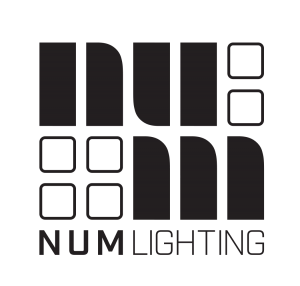The Role of Blockchain in Transforming Industries

The Role of Blockchain in Transforming Industries
Blockchain technology has emerged as one of the most revolutionary advancements in recent years, promising to disrupt and enhance various sectors. From finance to healthcare, the role of blockchain extends beyond cryptocurrencies, offering a range of solutions that improve transparency, security, and efficiency. The integration of blockchain in different industries is paving the way for new business models and operational frameworks. For more information about our services and inquiries, please visit The Role of Blockchain https://ninadurel.com/contacts/.
Understanding Blockchain Technology
At its core, blockchain is a decentralized digital ledger that records transactions across many computers. This ensures that the recorded transactions cannot be altered retroactively without the alteration of all subsequent blocks and the consensus of the network. The technology operates on a trustless basis, eliminating the need for intermediaries and fostering direct transactions between parties.
Enhancing Security and Transparency
One of the key advantages of blockchain technology is its enhanced security measures. Transactions are encrypted and stored in a series of blocks, making it virtually impossible to alter once the data is finalized. This level of security is particularly beneficial for industries like finance, where the integrity of transactions is crucial. Furthermore, blockchain’s transparency means that all parties involved in a transaction can access the same information, greatly reducing disputes and enhancing trust.
Financial Services: A Primary Beneficiary
The financial sector has been one of the first to capitalize on the advantages of blockchain. Traditional banking systems often rely on centralized databases, which can be vulnerable to hacking and fraud. Blockchain introduces a decentralized approach, increasing security and reducing transaction costs. Payment processing companies, stock exchanges, and even central banks are exploring blockchain to improve the efficiency of their operations. For instance, cross-border transactions that traditionally took days can be settled in minutes using blockchain technology.
Supply Chain Management
Supply chain issues often arise from a lack of transparency regarding the product’s journey from the manufacturer to the consumer. Blockchain can effectively trace the provenance of goods, offering a clear audit trail. With each transaction recorded on the blockchain, companies can track products at every step of the supply chain, from origin to sale. This not only enhances accountability but also reduces losses from counterfeit goods, ensuring that customers receive authentic products.
Healthcare Revolution

The healthcare sector stands to benefit immensely from blockchain technology. Patient data can be securely stored on a blockchain, ensuring privacy while allowing for seamless sharing among authorized professionals. This not only improves treatment outcomes but also streamlines administrative processes. For instance, maintaining a secure, verified record of medications and treatments can reduce the occurrence of medical errors. Furthermore, blockchain can aid in tracking the supply chain of pharmaceuticals, reducing the risk of counterfeit drugs.
Real Estate Transactions
Real estate transactions can be notoriously slow and cumbersome due to the need for extensive documentation and multiple intermediaries. Blockchain has the potential to simplify these processes significantly. Smart contracts—self-executing contracts with the terms directly written into code—can automate various aspects of real estate transactions. This reduces the need for paper documentation, speeds up the process, and lowers costs. Additionally, property records can be securely recorded on the blockchain, minimizing disputes related to ownership and title issues.
Legal Industry Implications
The legal industry can also leverage blockchain technology to improve contract management and compliance. Smart contracts can be used to automate contract execution, reducing the need for litigation over breached agreements. Furthermore, blockchain provides a tamper-proof method of storing legal documents, ensuring their integrity and authenticity. This innovation can lead to more efficient dispute resolution and a decrease in fraud.
Challenges and Limitations
While the potential of blockchain is vast, several challenges remain. Scalability is a significant concern, as many blockchain networks struggle to process large volumes of transactions quickly. Additionally, regulatory uncertainties may hinder the widespread adoption of blockchain technologies. Different countries have varying views on cryptocurrency and blockchain, making it essential for businesses to navigate these legal landscapes carefully.
The Future of Blockchain Technology
The future of blockchain technology looks promising as more industries explore its potential. As the technology matures, we can expect increased collaboration between businesses, governments, and the tech community to develop standardized protocols. Investments in blockchain startups and initiatives are growing, leading to innovative solutions that integrate blockchain with other emerging technologies like Artificial Intelligence (AI), Internet of Things (IoT), and more.
Conclusion
The role of blockchain in transforming industries cannot be overstated. By enhancing security, improving transparency, and streamlining operations, blockchain technology is poised to revolutionize how we conduct business in various sectors. As organizations begin to realize the benefits and potential applications of blockchain, its adoption will continue to grow, impacting our world on multiple levels. While challenges may exist, the ongoing development and innovation within this space provide a hopeful outlook for the future of blockchain technology.
